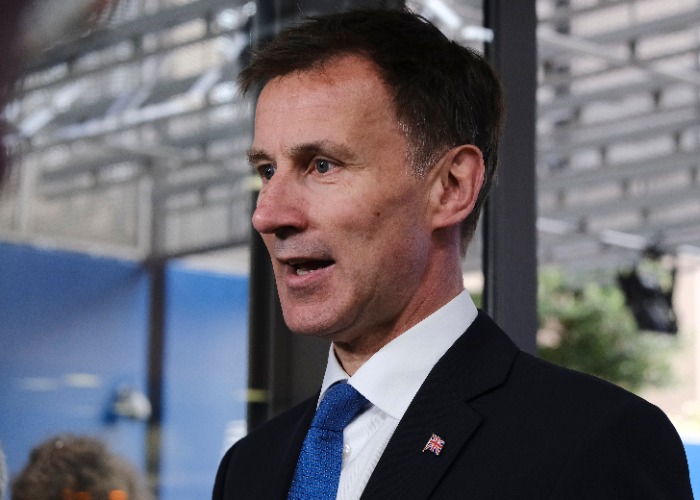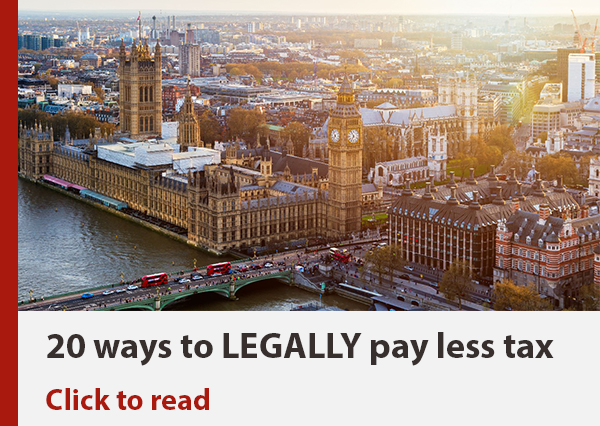Opinion: Autumn Statement sleight of hand leaves millions out of pocket

Stealth taxes are doing the dirty work for the Chancellor, who hopes his tax tweaks will distract us from the truth, claims John Fitzsimons.
The Autumn Statement was presented as a tax-cutting event by the Chancellor yesterday, but in truth it’s anything but.
Jeremy Hunt certainly did a decent job in presenting his various measures as being motivated by reducing tax, and leaving us all better off.
And there were a few changes in there clearly designed to grab headlines ahead of next year’s General Election.
The trouble is that it didn’t take long for the sheen to fade, and for it to become clear that, in reality, we are all going to be counting the cost for some time.
Sleight of hand
It is absolutely true that there were tax cuts contained within the Autumn Statement, with reductions to National Insurance for both the employed and self-employed.
It's said the NI cuts will cost the Government around £10 billion.
While that sounds like a massive sum, it barely touches the sides given the way that ‘fiscal drag’ is impacting all of us.
By keeping the thresholds at which we start paying various taxes frozen, inflation essentially does the dirty work for the Government, dragging more and more of us into higher tax bands and therefore having to hand over greater amounts to the government.
This is made clear by analysis from the Government’s own Office for Budget Responsibility, which reckons that over the six-year period to 2028-29 ‒ the period when these thresholds are frozen ‒ the Treasury will raise an additional £44.6 billion compared with if thresholds had grown in line with inflation.
It’s not just that headline figure that’s so disturbing, but the impact on individuals.
That freezing tactic will drag an additional four million people into paying tax in the next few years, while pushing three million onto the higher rate and 400,000 onto the additional rate of Income Tax.
It’s worth noting that since the OBR’s last forecast back in the Spring, that’s an increase of 830,000, 900,000 and 43,000 respectively, a staggering insight into how big a difference it is making.
That’s millions of us facing a higher Income Tax bill, without the Chancellor having to announce a tax increase.
Getting the priorities wrong
There had been an awful lot of speculation ahead of the statement around mooted tax moves which would have undoubtedly favoured the well-off, such as scrapping Inheritance Tax or increasing the annual ISA allowance.
In the end, these didn’t actually take place, yet it’s worth bearing in mind that the measures which did make it into the statement are still geared towards helping those who need the support least.
Analysis from the Resolution Foundation found that around 40% of the gains from the tax and benefit measures in the statement will be going to the richest fifth of the population.
That top 20% of people in the UK will gain £1,000 from the measures, compared with the bottom fifth getting about £200 from them.
That the Chancellor saw fit to trumpet the “biggest business tax cut in modern British history” seems like a joke when we already know how badly ordinary households are struggling to meet their existing bills, and are going to face higher tax bills in the years ahead.
Hitting us in the pocket
Let’s be clear, very few people are actually going to be any better off as a result of this statement, besides perhaps those who live close to energy pylons and may see £10,000 sliced off their bills over a 10-year period.
And it just closes off an absolute disaster of a parliament for our finances.
As the Resolution Foundation points out, real household disposable incomes (so taking inflation into account) are on track to have fallen by 3.1%, leaving households on average £1,900 worse off since December 2019.
That’s the first time this has happened across a parliament, which it described as “delivering a grim new record on living standards”.
One eye on the election
There is sadly always an element of deception when it comes to political statements.
There is an election coming next year, and so any decisions made were likely influenced at least in part by the campaign ahead, rather than what’s best for the economy overall.
After all, if we were taking a truly long-term approach to leaving the economy in a better state then there would be at least some thought put into a better way of handling State Pension increases each year rather than the Triple Lock.
Instead, knowing full well that pensioners are the most reliable voters, Hunt was always going to pass on the maximum possible pay increase.
Similarly, the timing of the National Insurance changes ‒ which kick in from January for the employed rather than the new tax year in April ‒ is designed to give voters a boost before heading to the polls.
But it’s the scale of that deception that really sticks in the craw: talking about cutting taxes, while the tax burden increases to a new record high.
You can tell me that our finances are in a better place, but all I have to do is look at my food bills or energy bills to know that’s a load of old cobblers.
Comments
Be the first to comment
Do you want to comment on this article? You need to be signed in for this feature
